






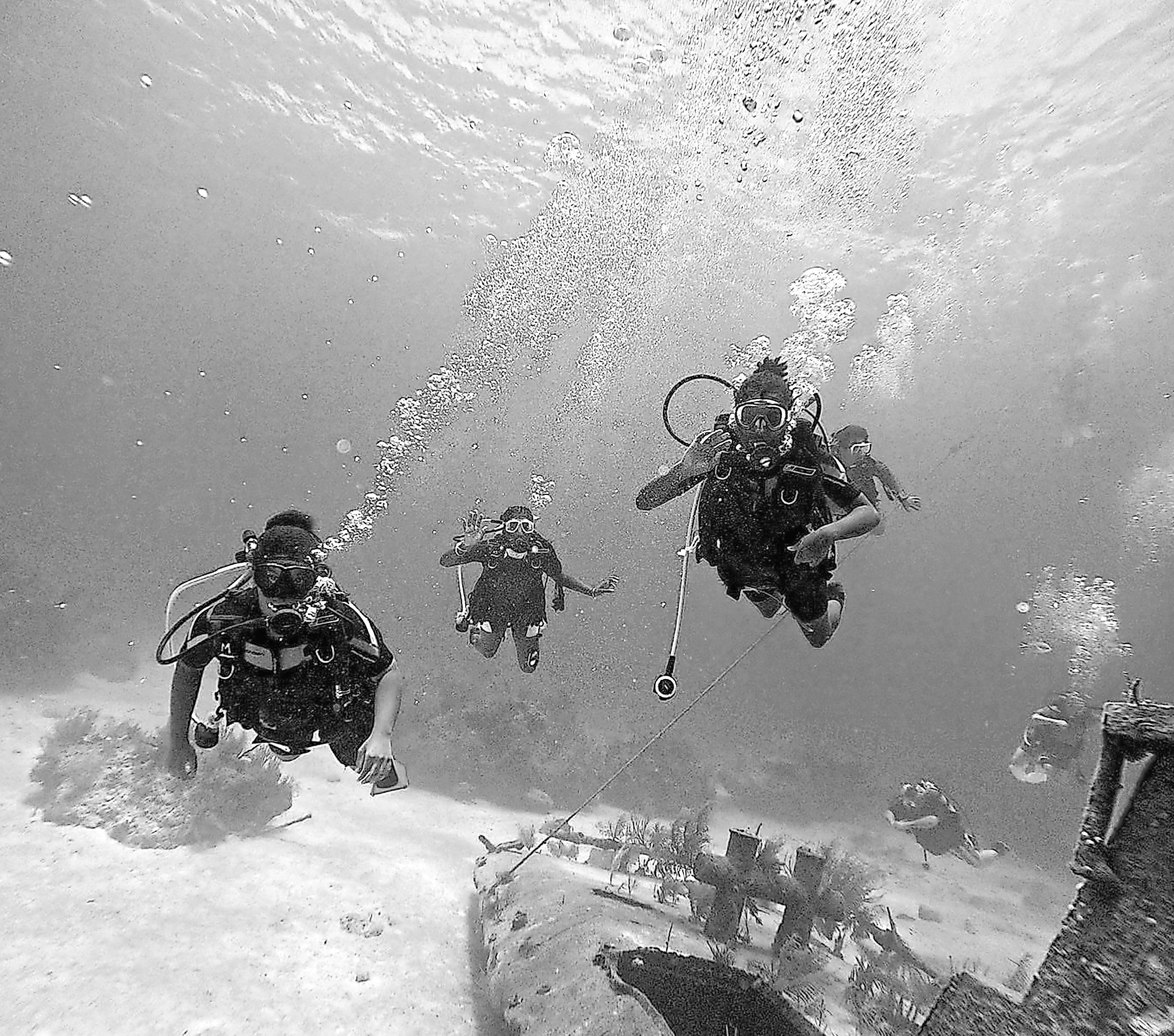
By
The Bahamas is so much more than a collection of islands — it is a large ocean nation. Approximately 95 percent of our territory is currently underwater, although this percentage is expected to increase as global sea levels continue to rise.
Our identity, our economy, and our future are tied intrinsically to the health of the sea that surrounds us. The ocean provides us with food, jobs, protection from storms, and the breathtaking beauty that draws visitors from around the globe. But its continued ability to sustain and protect us depends entirely on the decisions we make today.
As Bahamians, we stand at a critical crossroads. The next administration must acknowledge the vital link between ocean health and national well-being. Our way of life and the future we pass on to the next generation depend on bold leadership that puts the protection of the ocean front and centre.
This begins with adopting and enforcing policies that safeguard our marine ecosystems, including coral reefs, mangroves, and seagrass beds. These are not just beautiful features of our environment; they are natural infrastructure.
Reefs and mangroves protect our shorelines from hurricanes. Seagrass beds nurture the fisheries our families depend on. Protecting these ecosystems is a matter of national resilience and security.


In addition to these pressures, we must also confront the growing threat of over tourism, which can overwhelm fragile marine environments and strain local resources, such as water, electricity, and waste disposal capacity.
The Bahamas is not alone in grappling with this complex issue. We must commit to a Bahamian model of sustainable tourism—one that respects ecological limits, benefits local communities, and preserves the
We already have some strong environmental laws on the books, but enforcement needs to be prioritized. Illegal fishing, unsustainable development, and disregard for environmental protections threaten to undo the progress we’ve made. The next administration must strengthen enforcement, crack down on violators, and support sustainable livelihoods in fisheries and tourism that depend on a healthy ocean.
“Our way of life and the future we pass on to the next generation depend on bold leadership that puts the protection of the ocean front and centre. This begins with adopting and enforcing policies that safeguard our marine ecosystems, including coral reefs, mangroves, and seagrass beds. These are not just beautiful features of our environment; they are natural infrastructure. Reefs and mangroves protect our shorelines from hurricanes. Seagrass beds nurture the fisheries our families depend on. Protecting these ecosystems is a matter of national resilience and security.”
natural beauty and biodiversity that make our islands unique.
Beyond policy, we must also nurture a deeper cultural connection to the sea.
Every Bahamian should have the opportunity to learn to swim, snorkel, and experience first-hand the wonders beneath the waves. When people are immersed in the ocean, they begin to understand it, and when they understand it, they learn to love and protect it.
This is why organisations like BREEF and Waterkeepers Bahamas—both founding members of the Our Islands Our Future Coalition—are leading the way. BREEF is hosting a
summer full of hands-on ocean experiences, helping Bahamians from all walks of life discover the beauty and importance of our marine environment. Waterkeeper Bahamas continues to advocate tirelessly for fishable, swimmable, drinkable waters— for all Bahamians, now and in the future.
At the same time, we must resist proposals that pose a threat to the very foundation of our ocean-based economy. Offshore oil drilling has no place in The Bahamas. It is dirty, outdated, and incompatible with the climate-resilient future we need. Instead, we should be investing in renewable energy, reducing
our reliance on fossil fuels, and becoming a global leader in sustainable living. The Our Islands Our Future Coalition will continue to work in collaboration with partners in The Bahamas and around the world to protect our country from the threat of oil drilling. However, we need the support of both the government and citizens alike.
In the end, we protect what we love, we love what we understand, and we understand what we are taught. Let us teach one another—through experience, through policy, and through action—to love and protect our ocean. Our future depends on it.

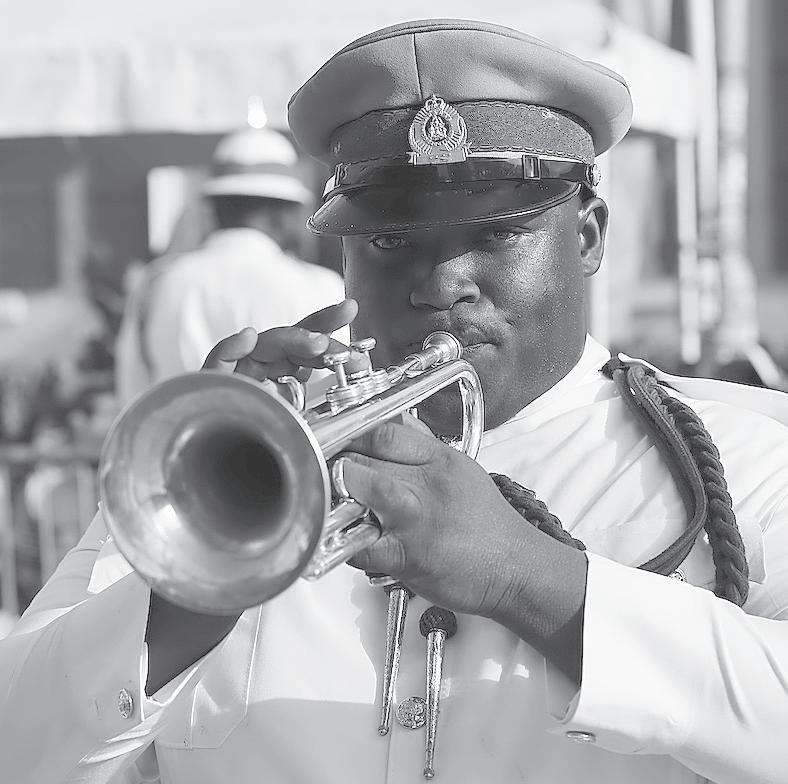
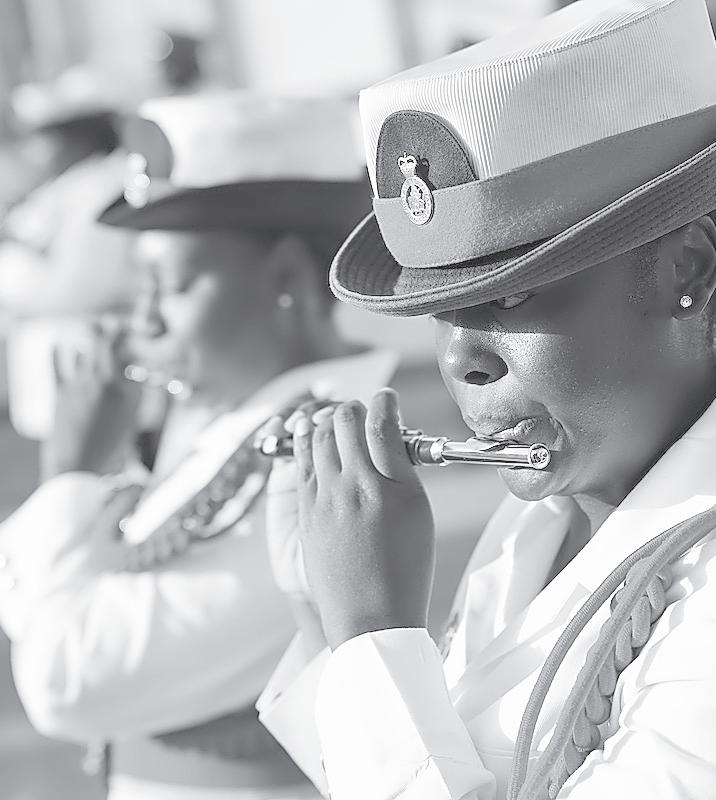
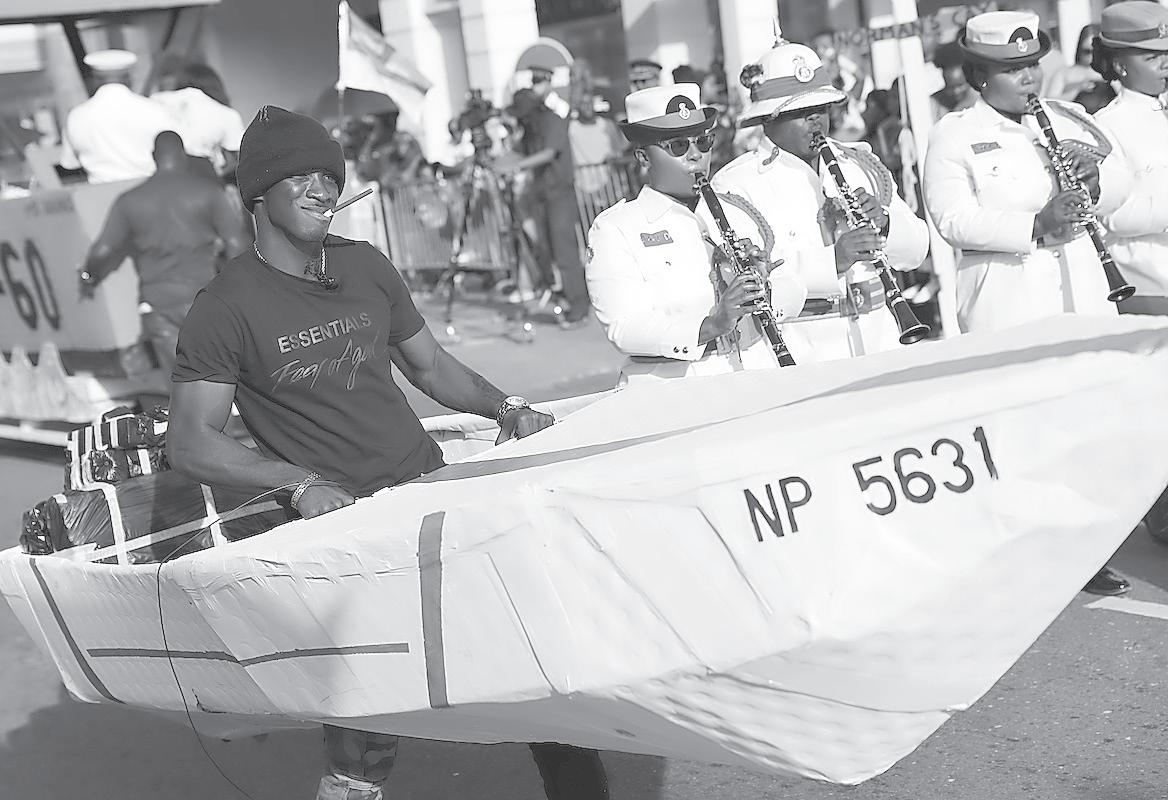
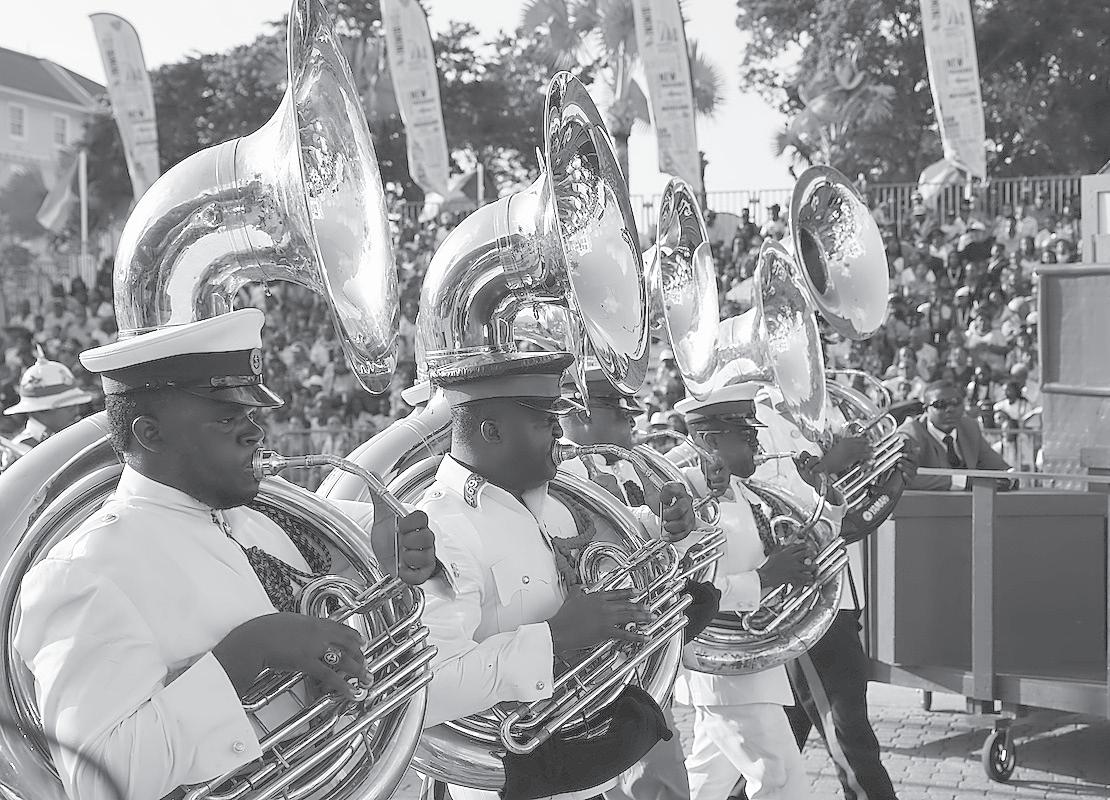



PROUD TO BE BAHAMIAN: Scores of proud Bahamians enjoy the Beat Retreat Experience on Sunday, July 29. The ceremonial event at Parliament and Rawson Squares featured performances by the Royal Bahamas Police Force, Defence Force, and Bahamas Department of Corrections Band, showcasing discipline, precision and musical talent in celebration of our heritage.


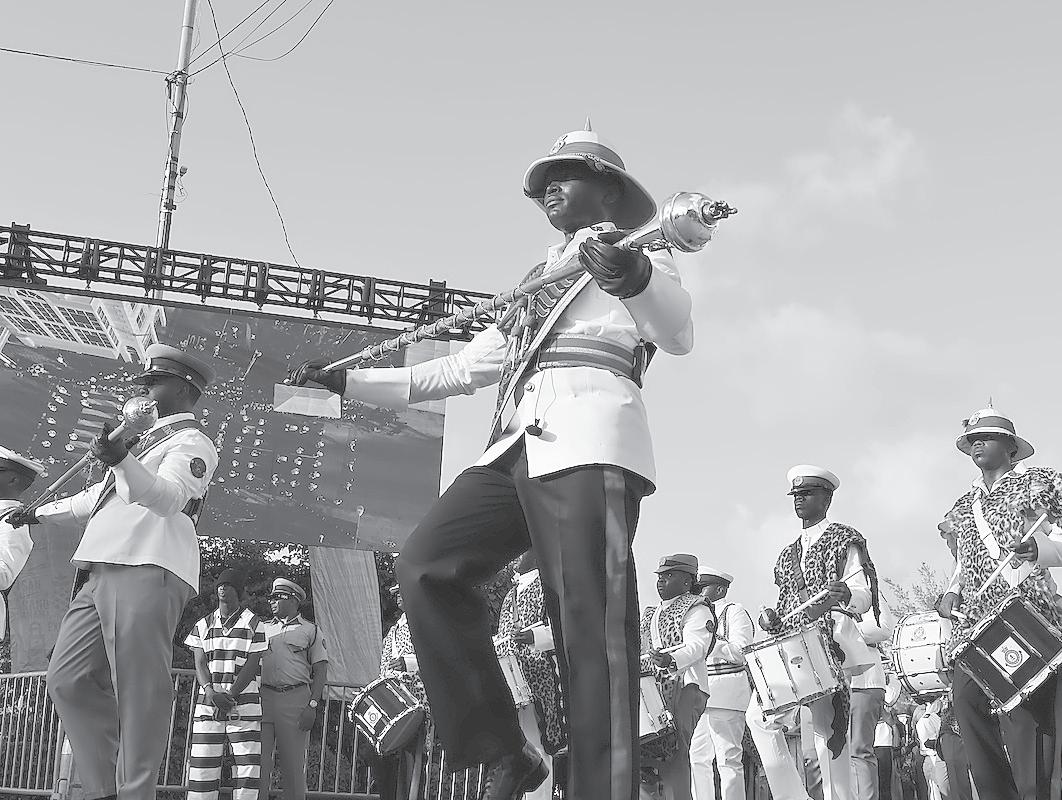



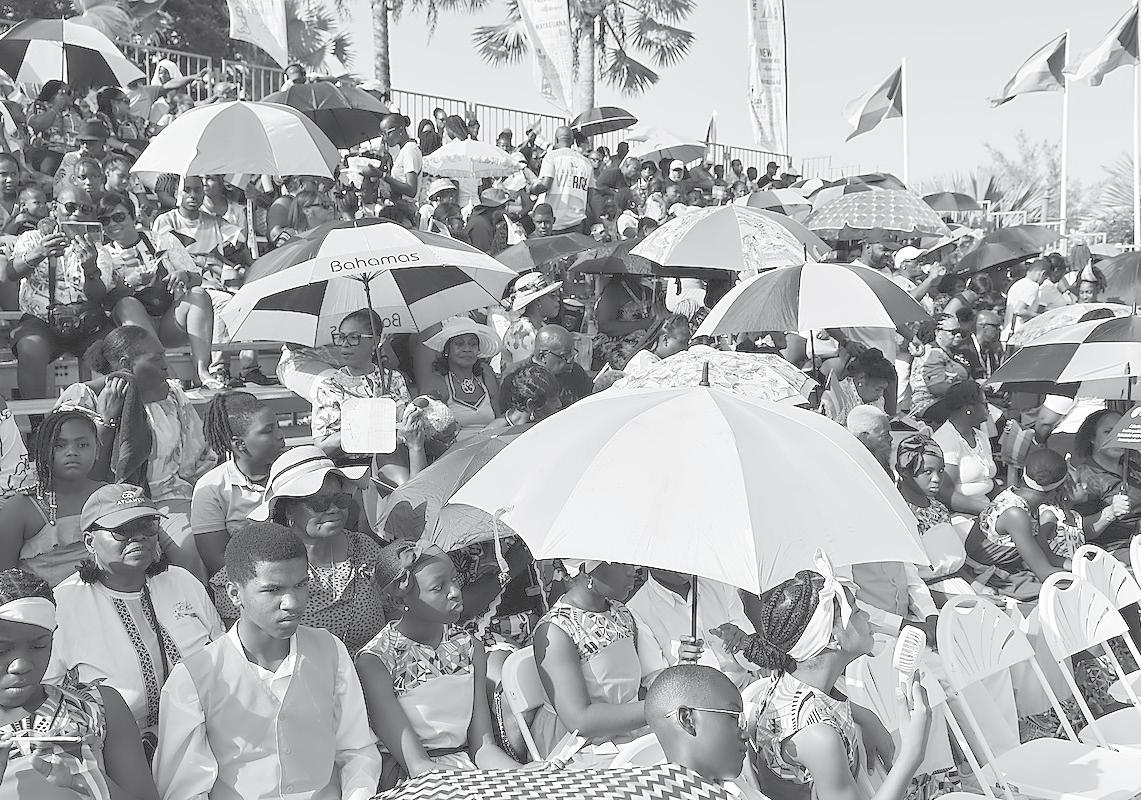

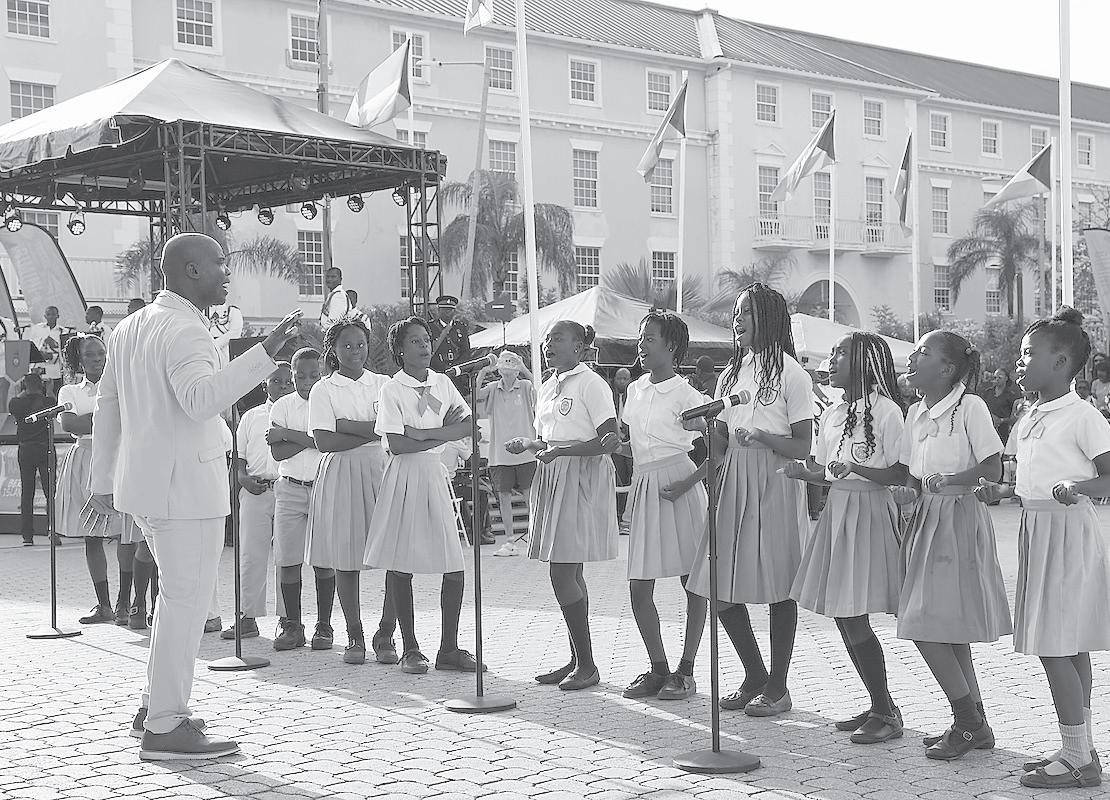

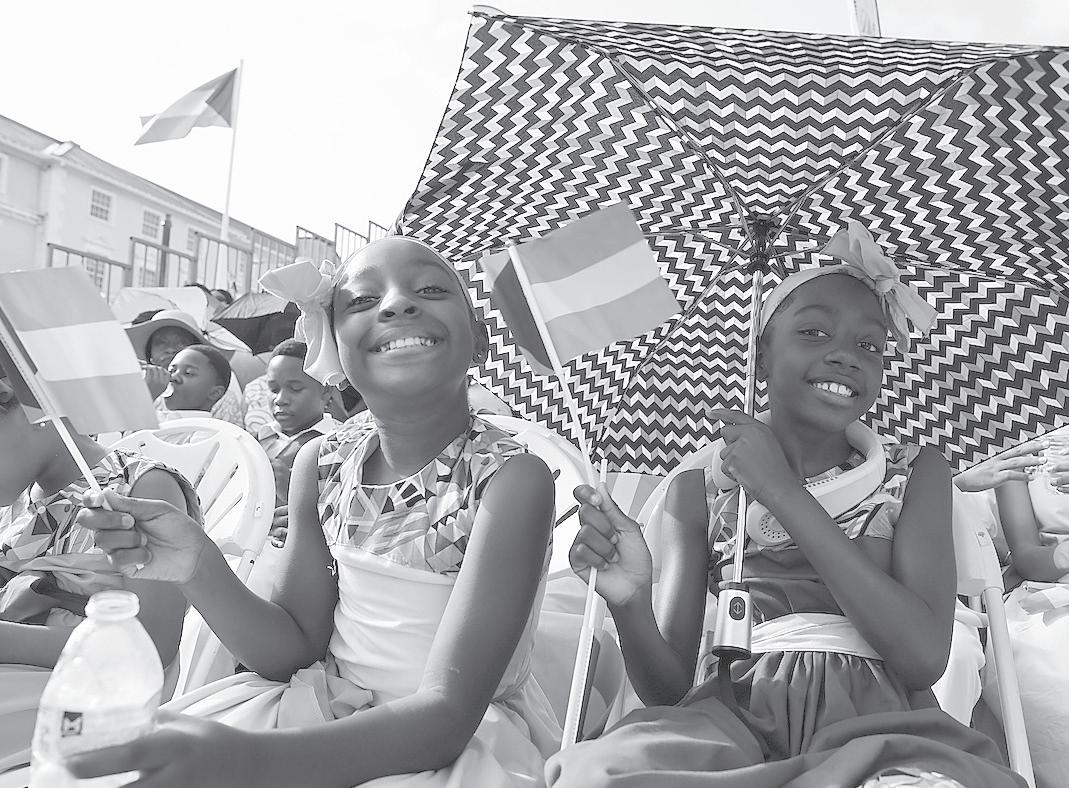

MARKING 52 YEARS OF INDEPENDENCE: Scores of proud Bahamians enjoy the Beat Retreat Experience on Sunday, July 29. The ceremonial event at Parliament and Rawson Squares featured performances by the Royal Bahamas Police Force, Defence Force, and Bahamas Department of Corrections Band, showcasing discipline, precision and musical talent in celebration of our heritage.


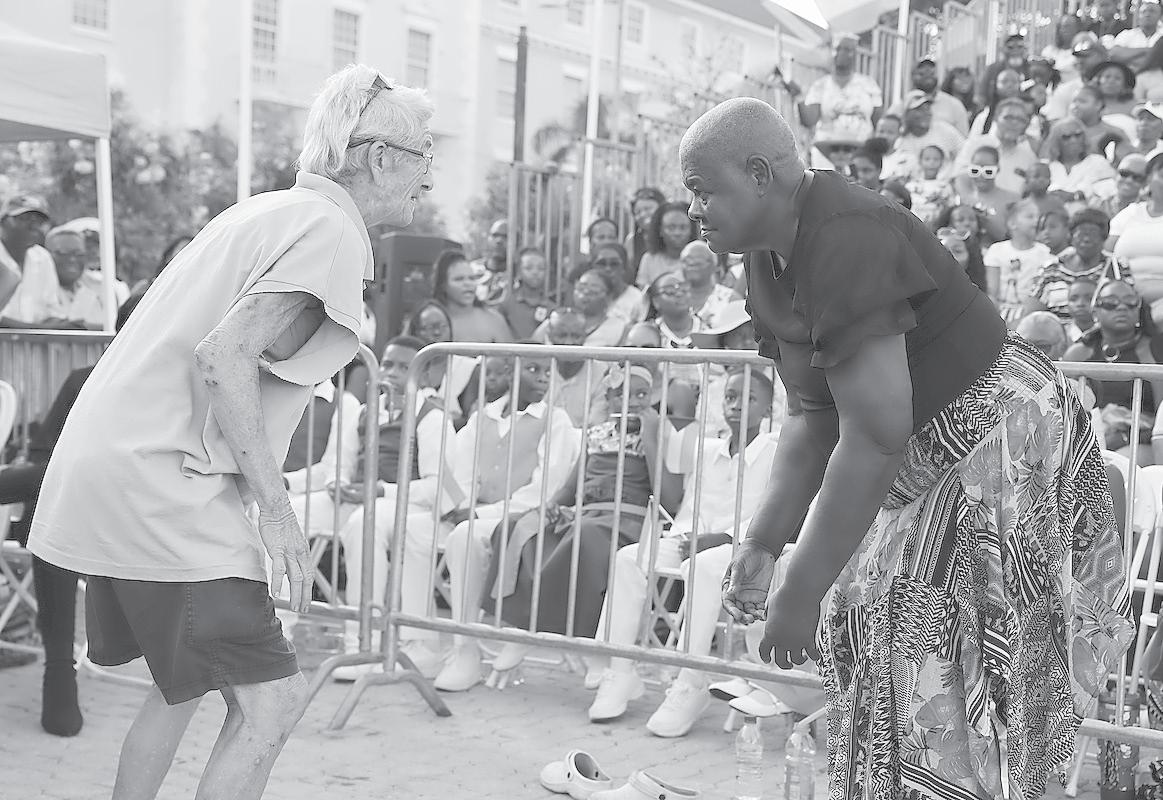


By SHARLEEN HANSON Director, Boost Academy
Recently, I had the privilege of attending a powerful think tank on education reform here in The Bahamas. The conversation was frank, energising, and long overdue. One truth became glaringly clear: if we were truly committed to resourcing and transforming our public education system, not only would far fewer families feel compelled to seek alternatives, but the entire country would be better off!
That is not to say private schools shouldn’t exist. They will continue to play an important role in our educational landscape. Private institutions often serve niche needs that a government system, by its very nature, may never be fully equipped to meet, such as smaller class sizes, highly specialised programming, or unique pedagogical approaches. However, what must change is the assumption that quality education can only be found in the private sector.
What would it take to ensure that every Bahamian child, regardless of income, neighborhood, or family structure, can access the kind of education that helps them thrive?
This is just one of the many questions explored when I attended the workshop to compile information which will later be released in the Feminist Standards for Governance: Education, by Equality Bahamas. That framework emphasises what many of us already know deep in our bones: education cannot be separated from the wider community. We need a holistic, community-centered approach to education that treats learning not as a system to be managed but as a pathway to “The Good Life”.
What’s broken?
One of the core issues we identified was the growing separation between formal education and community life. We’ve lost the “village” approach that once grounded our families and helped children feel supported. Decision-makers are often uninformed by data, detached from community needs, and overly reliant on imported practices that don’t reflect our Bahamian realities.
At the same time, we continue to operate within a standardised neo-colonial model of education.
Our children face a system that doesn’t nurture their development during key cognitive years, and too many emerge unprepared for adult life, stuck in cycles of poverty, trauma, and disconnection. These aren’t just abstract policy failures; they are personal and generational tragedies.
Why this should matter to everyone
Whether you have school-age children or not, education reform affects all of us. A failing system leads to frustrated young people, underprepared workers, and communities where opportunity is scarce. Of course, we also see this reflected in rising rates of crime and social unrest.
We ultimately want our children to be confident and able to contribute to the wider society, but this can’t be achieved if we continue
year leaves no room for retakes, adaptive pacing, or real-time data on student performance, all of which are essential in diagnosing learning gaps and supporting student progress throughout the year.
The current system also disadvantages students who only sit their BGCSE exams in their final year of high school. If they happen to perform poorly or fail, they are often left with limited and costly options. Many must pay out of pocket for additional tutoring and registration fees, or attempt to restudy their subjects while balancing the demands of full-time work or tertiary education. This can create a heavy burden for young adults who are already navigating a critical transition in their lives. Introducing two or three sittings of the national exams each year
the push for early academic performance, we have stripped away imagination, cooperative learning, play, and movement in favor of excessive seat work. But this often results in children being pushed into learning activities before they are developmentally ready, which can have the opposite effect of what was intended. It erodes their natural joy of learning. Instead, young children need time to explore, to move, to collaborate, and to fall in love with learning. Fostering their curiosity and sense of wonder is far more beneficial in the long run than rushing into rigid academics.
It is also important to acknowledge that this article primarily focuses on reforms for neurotypical students who are able to learn in a standard class-
“One of the key areas in urgent need of reform within The Bahamas’ education system is the national examination framework. Currently, national exams such as the BJC and BGCSE are wholly paper-based and administered only once per year. This model not only places immense pressure on students and teachers, but it also fails to reflect a modern, flexible approach to assessment.”
to patch holes rather than redesign the boat. The goal must be bigger than graduation rates alone. We must build an education system that contributes directly to improving national wellbeing and quality of life.
What needs to change?
One of the most disturbing realisations we came to in the think tank was how much idealism we’ve lost. As a society, we no longer expect transformation, so we settle for tweaks. It is so important that we come together to dream again about what could be possible if we demanded better of our leaders, and ourselves.
One of the key areas in urgent need of reform within The Bahamas’ education system is the national examination framework. Currently, national exams such as the BJC and BGCSE are wholly paper-based and administered only once per year. This model not only places immense pressure on students and teachers, but it also fails to reflect a modern, flexible approach to assessment. A single exam sitting each
would provide students with more flexibility and second chances, reducing the long-term impact of a single poor performance and better supporting lifelong learning and workforce readiness.
Moreover, the current exams are heavily focused on the rote memorization of facts rather than the application of knowledge, problem-solving, or critical thinking: skills that are increasingly vital in today’s global economy. As a result, students who may be capable of demonstrating understanding in practical, creative, or digital contexts are disadvantaged by a system that rewards surface-level recall.
Revamping the national examination system to incorporate more continuous, skill-based, and tech-enabled assessments, along with multiple sittings, would not only align The Bahamas with international best practices but also provide a more equitable and meaningful measure of student learning.
We must also take a hard look at what has been lost in the early primary years. In
— Sharleen Hanson
room environment. An equally urgent area for reform is the development of robust special education supports.
Far too many children with learning differences or disabilities are left behind or underserved, and that must change. An inclusive education system must meet the needs of all learners and not just those who fit the mold.
To do that, we must:
• Restructure the curriculum around Bahamian identity and innovation, not imported metrics
• Forge deeper connections between The Ministry of Education and the Ministries of Health, Security, Youth, and Tourism
• Rationalise the use of police in schools and redefine safety
• Ensure that efforts to improve graduation rates are matched by a commitment to meaningful, deep learning and skill development
• Restore imagination, play, movement, and inquiry-based learning to the early years of schooling
• Expand special education supports and inclusive
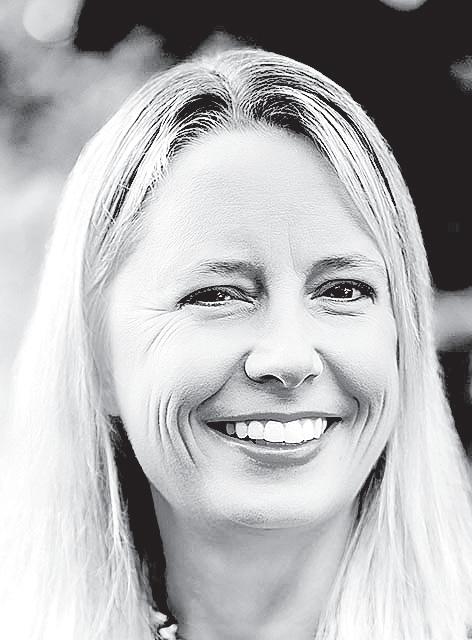
practices for children with diverse learning needs
Above all, we must reestablish the link between education and the good life, where school becomes a tool for building joyful, sustainable communities, not only job readiness.
What our system needs
If we’re going to transform education, we need to overhaul the support systems that surround it. We can’t continue to expect teachers to solve complex social problems with limited resources and outdated tools.
One of the most urgent needs is better compensation and support for our teachers. Many educators are underpaid, overworked, and expected to go far beyond their job descriptions without adequate professional development, emotional support, or classroom resources.
If we want to attract and retain passionate, qualified teachers, we must ensure that teaching is a respected, well-paid profession with clear career pathways and consistent opportunities for growth.
Some of the other supports we identified include:
– A massive expansion of school-based mental health services
– The complete abolition of corporal punishment, replaced with traumainformed practices
– Safe, affordable, and reliable transportation for all school-aged children
– After-school programs that keep children safe and engaged until caregivers return
– Parenting classes and emotional healing spaces to address generational trauma
– Business accountability, through wages that allow parents to be present and involved in their children’s lives
Without these, the education system will remain overburdened and undersupported, despite the best
efforts of the people within them.
Who’s responsible?
The responsibility for fixing this system lies with all of us:
Parents, who must reckon with their own personal and educational traumas and learn to advocate for their children, and develop an appreciation for learning within their children
Government, which must fund and implement research-based reforms, not cosmetic ones
Teachers, who need to be trusted, trained, and respected Businesses, which must stop treating community investment as charity and start seeing it as strategy
And yes, even children, who deserve to be included in conversations about what kind of education they want and need
When each of these players works in isolation, we fail. But when we begin to align as a village, transformation becomes possible.
A shared vision As Director of Boost Academy, I remain proud of the work we do to create nurturing, innovative learning spaces but I also carry the conviction that no parent should feel forced to choose between affordability and quality. We should aspire to a future where excellent education is available to all, and not just to those with the means to pay for it. Let us dream together of a Bahamas where every child has the tools to succeed, not just in school, but in life. Let’s imagine an education system that’s not built to compete or sort children, but to restore wholeness, develop identity, and connect community. That kind of community-rooted transformation isn’t a fantasy. It is a future within our reach, if we are bold enough to act, united enough to commit, and persistent enough to see it through.
By JAMIE SYMONETTE
THE Bahamas is nearing its 52nd Independence and instead of having a sense of pride over the state of the country, many young Bahamians have a critical, downcast eye over the economy. On the brink of yet another election, many ponder exactly what the incoming governing party can do for Bahamians to improve the quality of life and have true financial independence. In a discussion with some of my peers, I gained some insight into steps that can be taken to reignite the dwindling faith that many have in the political parties. Firstly, the incoming government must come to the realisation that the focus must be on young Bahamians as they are the future. Administrations should ask themselves; how do we reduce the astronomical cost of living in The Bahamas?
A part of the solution to this question is to lower
“A truly independent Bahamas must have a strong economy. Reduce the cost of living. Break the monopolies. Diversify the economy. Train and hire skilled Bahamians. The future of the Bahamian economy can be bright but there is much work to be done.”
— Jamie Symonette

The Bahamas’s cost of living by diversifying the economy. The economy needs to eradicate the longstanding monopolies which charge unbelievably exorbitant rates to frustrated consumers. For instance, it is outrageous when Bahamians have to rely on Water and Sewerage and Bahamas Power and Light when it seems that all these organisations care about is making
a killing off Bahamian consumers by way of high price charges and dated services. The Bahamian monopolies must be broken. Another measure the incoming party must develop is trade diversification. Trade diversification can occur through the export/import of goods and services or the import/ export of existing products to new markets. If the
economy is not diverse, it is vulnerable to external shocks and economic growth is limited. A diverse economy provides stability and room for development. The government can help with diversifying the economy by reducing the cost of investment and creating accommodating labour market regulations. Furthermore, if the Bahamian economy is to grow, the incoming government’s
extreme over-dependence on the tourism and financial industries should be a thing of the past. The governing party should be more forthcoming regarding economic empowerment zones. This can be done by increased reliance on economic diversification into new sectors such as renewable energy with the exploration of deep-sea oil and gas production, digital technology and last but not least, agricultural development. Additionally,schools should educate young people in these fields. STEM and BAMSI courses are available in the high schools, but there is still a lot more to be done to widen the pipeline for these potential industries. Finally, new and emerging industries like those mentioned above need to be made more attractive to young, educated Bahamians in the workforce. The incoming government should seek to increase the amount of skilled young Bahamians they hire. To be
attractive, the jobs must be above entry level jobs with competitive wages, offering Bahamian young professionals a true compensation for their degrees. Hiring Bahamian talent that has studied and lived internationally while offering them competitive pay is a step the government can take to not only diversify the economy and improve the skills gap, but it can also assist in reducing brain drain. The incoming government should “think globally and act locally”. Skilled Bahamians are all over the world with fresh and innovative ideas and talents that could serve as the cornerstone for national development plans. A truly independent Bahamas must have a strong economy. Reduce the cost of living. Break the monopolies. Diversify the economy. Train and hire skilled Bahamians. The future of the Bahamian economy can be bright but there is much work to be done.


